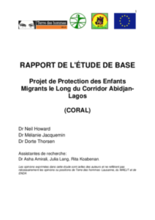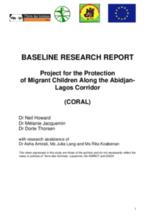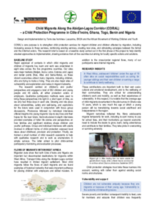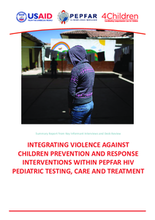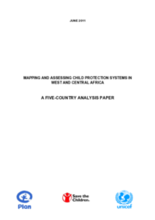childrens_living_arrangement
Displaying 11 - 20 of 26
Le présent document constitue le rapport de référence pour le Projet pour la Protection des Enfants Migrants le long du Corridor Abidjan-Lagos (CORAL), conçu principalement en tant qu'analyse de situation susceptible d'orienter la programmation future du projet.
The present document constitutes the baseline report for the Project for the Protection of Migrant children along the Abidjan-Lagos Corridor (CORAL), undertaken primarily as a situation analysis able to guide future programming.
This research brief is based on a baseline study carried out in the first phase of the Child Migrants Along the Abidjan-Lagos Corridor (CORAL) project to help identify situated approaches to implementation, drawing evidence from all five countries but aiming for locally specific actions and solutions.
This brief reference surveys the national policy of three representative African countries on the legal guardianship of children who are without parents or families.
This report presents the preliminary findings from an ongoing project undertaken by 4Children that seeks to identify key opportunities to incorporate violence prevention and response interventions within priority PEPFAR Program Areas at clinical and community levels.
This report presents the results of a scientific research on the topic of Social Exclusion of Vulnerable Youth, commissioned by SOS Children’s Villages Netherlands.
This report captures what has been accomplished in social service workforce strengthening in eight countries in Sub-Saharan Africa and highlights areas for future intervention. Progress made to strengthen the social service workforce within these countries is useful when reflecting on global trends and ways forward.
The purpose of this study was to examine the impact that the use of a Community Caregiver service provision model had on outcomes for children orphaned or made vulnerable by HIV/AIDS in Côte d’Ivoire.
In this short video, BBC News interviews Gramboute Ibrahima, a local social worker who helps child trafficking victims in Abengourou, Ivory Coast. His organisation, CREER, has opened the region's first centre to help rehabilitate trafficked children. Almost every country in the world is affected by human trafficking. Children are particularly at risk, often sold across borders to work in brothels or on farms.

